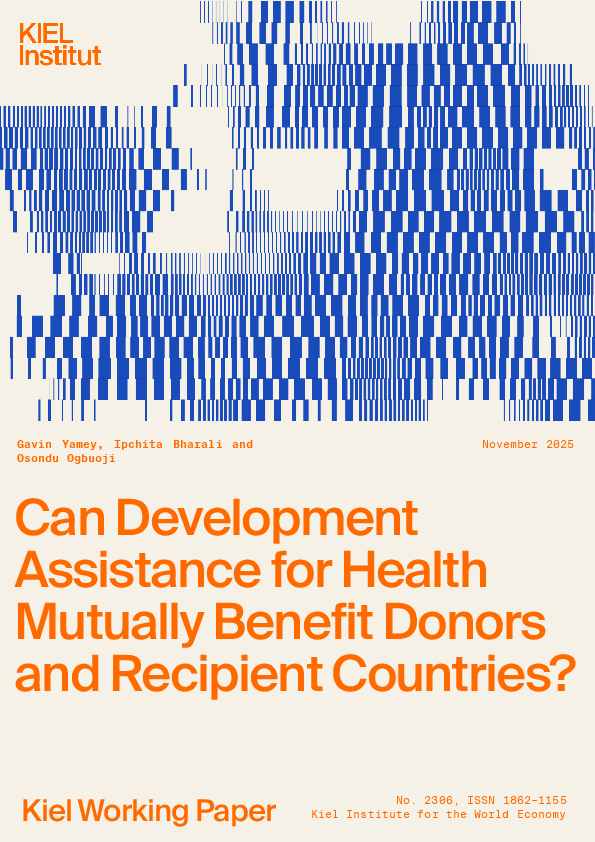Working Paper
Can Development Assistance for Health Mutually Benefit Donors and Recipient Countries?
Authors
Publication Date
JEL Classification
Key Words
Related Topics
Political Economy
Africa
Americas
Asia
China
Europe
Germany
USA
Emerging Markets & Developing Countries
Health
Sustainable Development
The year 2000 marked the start of a period of sustained growth in the amount of annual health aid, but that era is now over. This year, several donors made large cuts in their official development assistance (ODA) for health, accompanied by other shocks to the global health system. While the impact of these aid cuts on public health in recipient countries has received widespread political, advocacy, and media attention, much less attention has been paid to how these declines could affect donors. This lack of attention is probably because there has been surprisingly little empirical research on the benefits of health ODA to donors, so the benefits are poorly understood. In this paper, we therefore set out to examine the research evidence on the impact of health ODA on both recipients and donors. We use the term “mutual interest health ODA” to denote health ODA that has benefits for both recipients and donors. We found evidence that health ODA could mutually benefit recipients and donors and categorized these benefits into (i) health benefits and health-related economic benefits; (ii) economic benefits unrelated to health; and (iii) political benefits. While there is an important ongoing role for health ODA, the rapid changes in global health assistance—including the sharp decline in funding levels—is sparking important discussions about what this role should be and how health ODA should best be targeted. Our review of what the empirical evidence shows on mutual interest health ODA could help to inform these discussions, assisting donor governments in quantifying the value of their health aid investments and helping to shape health aid portfolios in an era of rising fiscal pressures.






